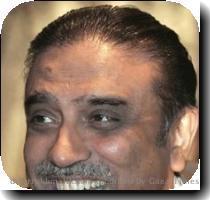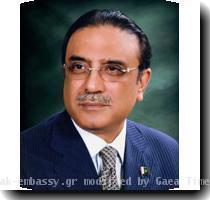Death toll from suicide bombing on Shiite procession in Pakistan’s Karachi rises to 40
By Ashraf Khan, APTuesday, December 29, 2009
Death toll from Karachi bombing reaches 40
KARACHI, Pakistan — Authorities appealed for calm Tuesday as the death toll from a bombing against a Shiite Muslim procession in Pakistan’s largest city of Karachi increased to 40.
Monday’s bombing against a Shiite procession marking the key holy day of Ashoura sparked riots as people rampaged through the city, setting fire to markets and stores. Firefighters were still battling the flames Tuesday, with authorities calling for reinforcements from the city of Hyderabad, 170 kilometers (105 miles) north of Karachi, Pakistan’s main commercial hub.
Karachi Mayor Mustafa Kamal said the city’s largest wholesale market was on fire, and that hundreds of shops had been destroyed, with damages estimated to run into millions of dollars.
Interior Minister Rehman Malik, who visited Karachi on Tuesday, said authorities were still trying to determine whether the attack had been carried out by a suicide bomber, as he had said Monday.
“The investigation is still going on to determine whether it was a suicide attack or some improvised explosive device was used,” said Malik, who appealed for calm and said he had ordered an investigation into who was behind the rioting.
“If anyone is trying to cripple Karachi, then he is also trying to cripple Pakistan,” the minister said.
Provincial Health Minister Sagheer Ahmed said the death toll from the attack increased to 40 on Tuesday after several severely wounded people died while hospitalized.
Karachi has largely been spared the Taliban-linked violence that has struck much of the rest of the country, a fact that analysts believe is driven by the group’s tendency to use the teeming metropolis as a place to rest and raise money. But the city has been the scene of frequent sectarian, ethnic and political violence.
It was unclear who was behind Monday’s bombing. Pakistani authorities say sectarian groups have teamed up with Taliban and al-Qaida militants waging war against the government in a joint effort to destabilize Pakistan. More than 500 people have been killed in attacks since mid-October when the army launched a major anti-Taliban offensive in the country’s northwest.
“A deliberate attempt seems to be afoot by the extremists to turn the fight against militants into a sectarian clash and make the people fight against one another,” said President Asif Ali Zardari in a statement Monday.
Monday’s bombing struck at the start of a procession of Shiites marking Ashoura, the most important day of a monthlong mourning period for the seventh-century death of the Prophet Muhammad’s grandson, Imam Hussein. Minority Shiites have suffered frequent attacks by Sunni extremist groups who regard them as heretical.
“I fell down when the bomb went off with a big bang,” said Naseem Raza, a 26-year-old who was marching in the procession. “I saw walls stained with blood and splashed with human flesh.”
Residents in apartments near the blast site tossed down body parts that had been cast into their homes from the explosion, while birds dove down to pick at the flesh amid damaged vehicles and motorbikes.
Bomb disposal squad official Munir Sheikh said some 35 pounds (16 kilograms) of high explosive were used in the bombing. He said the intact head and torso of the suspected suicide bomber was found on the third floor of a nearby office building, where it had crashed through a window.
No group claimed responsibility for Monday’s attack, but Malik on Monday pointed his finger at a cluster of militant groups, including the Pakistani Taliban, al-Qaida, Lashkar-e-Jhangvi and Jaish-e-Mohammad, that he said have a joint goal to destabilize Pakistan.
Malik appealed to the Shiite community to cancel processions for the next two days.
Monday’s bombing was the third explosion in as many days to hit Karachi, although authorities attributed a blast that wounded 30 on Sunday to a buildup of gas in a sewage pipe. Protests broke out after that blast too, with Shiites torching at least three vehicles.
On Saturday, another blast near a Shiite procession wounded 19 people. Authorities attributed that explosion to a firecracker that was so powerful it left a crater in the road.
Associated Press Writer Munir Ahmad in Islamabad contributed to this report.
Tags: As-pakistan, Asia, Asif Ali Zardari, Bombings, Karachi, Municipal Governments, Pakistan, South Asia, Terrorism

